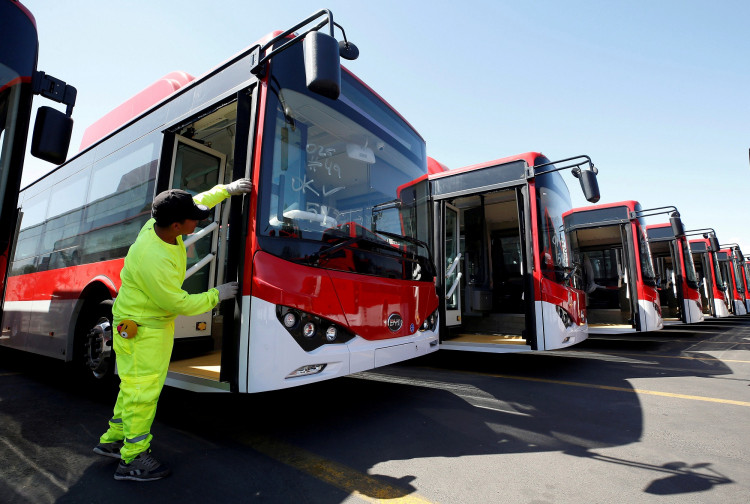The European Commission announced it will impose additional duties of up to 38.1% on imported Chinese electric vehicles (EVs) starting in July. This decision comes less than a month after the United States announced plans to quadruple tariffs on Chinese EVs to 100%. The EU's tariffs aim to counter what it sees as excessive subsidies provided by China to its electric car manufacturers, which has led to a surge in cheaper Chinese EVs flooding the European market.
The European Commission's decision targets a range of Chinese automakers, with tariffs starting at 17.4% for BYD and reaching up to 38.1% for SAIC. This is on top of the standard 10% car duty, translating to billions of euros in additional costs for these manufacturers. According to Reuters calculations based on 2023 EU trade data, these new tariffs could significantly impact Chinese carmakers already grappling with slowing demand and falling prices in their home market.
European automakers have found themselves under pressure from the influx of competitively priced Chinese EVs. The Commission estimates that Chinese EVs now make up 8% of the EU market, a sharp increase from less than 1% in 2019, with projections suggesting this could rise to 15% by 2025. These vehicles are typically priced around 20% lower than their European counterparts.
"This decision marks a significant shift in EU trade policy," commented Andrew Kenningham, chief Europe economist at Capital Economics. "While the EU has previously used trade defenses against China, this is the first time it has taken such action in an industry as crucial as automotive."
Shares in some of Europe's largest carmakers, including BMW, which produces EVs in China for the European market, fell on fears of retaliatory measures from Beijing. Chinese foreign ministry spokesperson Lin Jian condemned the EU's investigation as "a typical case of protectionism," warning that tariffs would harm China-EU economic cooperation and disrupt global automobile production and supply chains. Lin stated that China would take all necessary measures to "firmly safeguard" its legitimate rights and interests.
However, the Chinese Passenger Car Association (CPCA) seemed less alarmed. CPCA Secretary General Cui Dongshu noted, "The EU's provisional tariffs, averaging around 20%, are within our expectations and won't significantly impact the majority of Chinese firms." Cui added that companies like Tesla, Geely, and BYD still have substantial growth potential in the European market.
The new tariffs are scheduled to take effect by July 4, with the investigation continuing until November 2. Definitive duties, potentially lasting five years, could be imposed following this period. The EU Commission has indicated it will levy an additional 21% tariff on companies deemed cooperative in the investigation and 38.1% on those that did not. Notably, Tesla, the largest exporter of cars from China to Europe, has requested a separate company-specific rate.
While the European automotive industry has expressed concerns about the tariffs, with Volkswagen warning that the negative effects would outweigh potential benefits, some economists argue that the immediate economic impact will be minimal. The EU imported approximately 440,000 EVs from China over the past year, worth around 9 billion euros, representing about 4% of household expenditure on vehicles.
Despite the looming tariffs, some Chinese manufacturers are beginning to invest in European production facilities, which could help them avoid the duties. Meanwhile, Beijing has already initiated an anti-dumping investigation into predominantly French-made imports of brandy, raising fears of broader economic retaliation.






